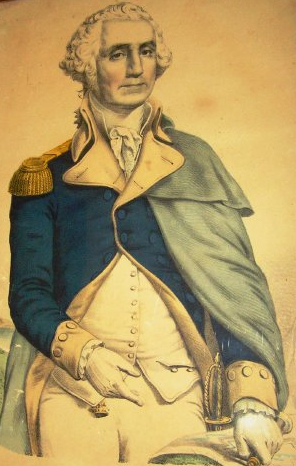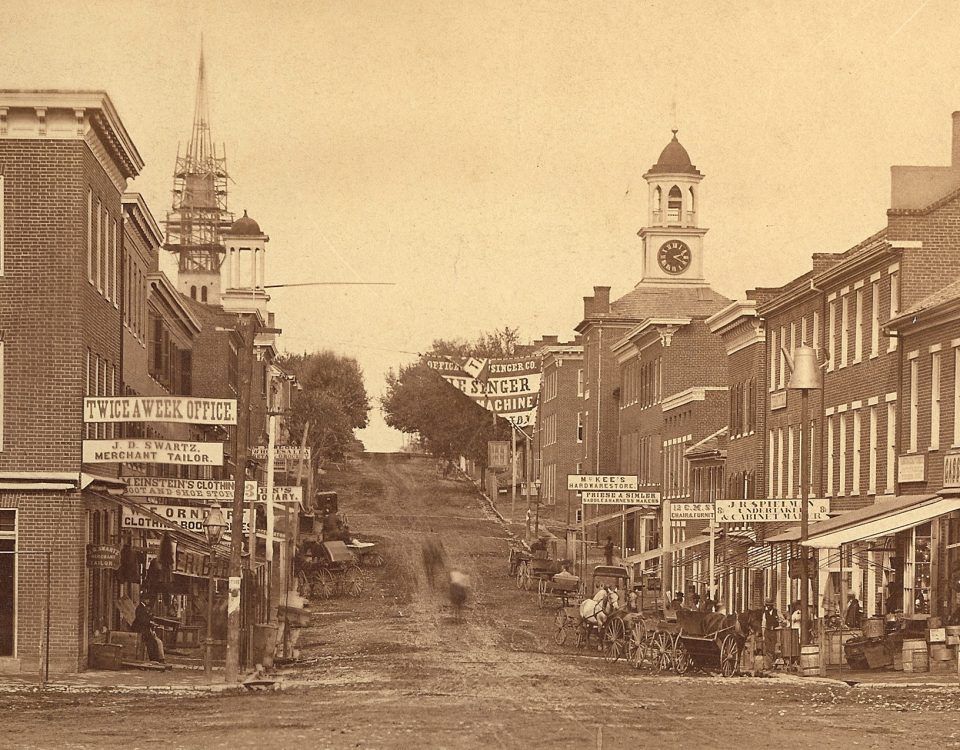The date was Dec. 25, 1776. A stinging, biting chill hung in the night air, as did a quiet sense of dread. Freezing rain cascaded down in a driving, relentless torrent, pelting man, horse and cannon alike. Men like William Heyser, a captain in the German Battalion of the Continental Army — in which many Washington County men served, grimaced in pain, unable to cry out as their raw, bare feet clung to snow and ice.
Did you know Washington County is famous for having had at least one participant in every major American military conflict? During the American Revolution, more than 80 residents like Heyser, Sgt. Jacob Miller, and Private Adam Stonebraker enlisted in the German Battalion at the beginning of the war. These men saw service in the disastrous New York Campaign, as well as the campaign that followed. In fact, these brave Washington Countians not only served in the desperate Ten Crucial Days Campaign, which began with a nine-mile walk through Hell to Trenton, but, as some of George Washington’s most experienced soldiers, they were in the forefront of the fighting at the Battles of Trenton and Princeton, which occurred on Dec. 26, 1776, and Jan. 3, 1777, respectively.
Following a devastating defeat at the Battle of Long Island, Washington’s Continental Army had been forced out of New York and New Jersey and all the way across the Delaware River into Pennsylvania. On the other side of the river, a force of British troops stationed at Princeton and a Hessian garrison at Trenton lay in wait. Troop morale was low. The Revolution hung by a thread.
To rekindle morale and keep the patriot cause alive, Washington needed a miracle. From Dec. 25 to Jan. 3 — with victories at the Battles of Trenton and Princeton — Washington, with the help of fighting men from Washington County, made his own.
On the night of Dec. 25, after crossing the freezing Delaware River and walking in hushed silence through nine miles of driving snow and freezing rain, Washington and his army arrived at Trenton.
Arriving just before daybreak on Dec. 27, Washington and his men, with the German Battalion and Heyser’s unit in the forefront, delivered a surprise attack on the sleeping Hessian garrison. Although the German Battalion fought fiercely, it suffered many losses in the fighting, including regimental commander Col. Nicholas Haussegger. Despite this, and perhaps because of it, the Continental Army won a stunning victory — gaining morale and capturing some much-needed supplies and munitions.
Victorious, and hearing news of an approaching British force, Washington’s army retreated back across the river to Pennsylvania. This retreat would not last long.
Washington had acquired a taste for victory, and it wasn’t yet sated. So it was that under the cover of darkness the Continental Army recrossed the Delaware on the night of Jan. 2 and headed for Princeton, N.J.
Arriving in Princeton borough on the morning of Jan. 3, the Continental Army was surprised to run into British resistance right outside of town. What began as a small skirmish soon evolved into a full-scale battle, where, again, pitted against a better-trained, albeit smaller force, the men of Washington County distinguished themselves on the field. After a day of vicious fighting, the Continental Army emerged victorious.
While the British saw the battles of Trenton and Princeton as insignificant American victories, it’s clear in hindsight that these victories were critical. With these victories, the Continental Army was inspired. With these victories, the Americans believed they could win the war. With these victories, the war effort was saved. And while much credit is given to Washington for his inspired leadership, ingenuity and bold decisions during these Ten Crucial Days, he didn’t do it alone. He had local soldiers like Heyser, Miller and Stonebraker behind him. Salt of the earth Washington Countians. Men who, when the Revolution was at a crossroads, helped to save and form a nation.





















